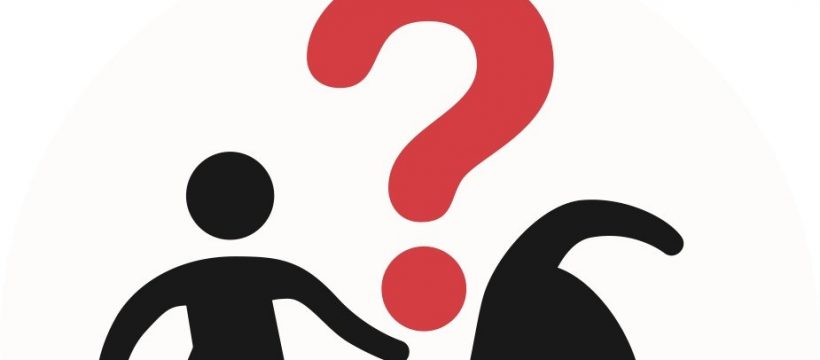Thanks to the draft, I served as a combat medic in Vietnam when I was 19. Though I was in many precarious situations (I was shot at and stepped on a land mine that didn’t explode), I came home safe. When I did, my father told me he’d taken a life insurance policy on me for $50,000. He was the beneficiary. He asked if I wanted to take over the premiums. I declined. I was so stunned that he was willing to profit from my death that I never said a word about this to anyone. My parents are long dead. I would like to discuss this with my siblings, but I don’t want to cause a rift. Your thoughts?
BEN
I’m sorry you’ve carried this weight alone for close to 50 years. My advice is to break your silence and start talking about this episode as much as you can bear: with siblings, a counselor or anyone who loves you — particularly people who knew your father and may have a perspective to offer on his behavior.
It was you, of course, who faced the mortal danger (and terror) of shipping off to Vietnam as little more than a boy. But your family suffered, too, at the prospect of losing a son and brother. And if I know one thing about suffering, it’s that it can make us do strange things.
Now, I don’t know about your relationship with your father, but I’m going to assume he wasn’t otherwise a monster. I also imagine that the military would have paid for your funeral and that you didn’t have mountains of debts or a family to support. With that in mind, I totally see how this life insurance looks like a coldhearted lottery ticket to you.
But I can also see how the terrifying prospect of losing a teenage son might move a parent to put everything he could in order, including insuring that boy’s life. This may not be wholly rational or erase the sting for you. But it does argue for speaking to your siblings and expressing your feelings. If they can’t support you, find a counselor. It’s time to start sharing your burden, Ben.
Why Are You So Loud?
I have been a shy person my entire life. And though I am comfortable as an introvert, friends and acquaintances will often say things like: “You don’t talk much” or “Why are you so quiet?” Mostly, I just shrug off these comments. But I think they perpetuate a negative attitude about introverts. How can I shut these people down without sounding too bitter?
ANONYMOUS
Quiet people can make conversations awkward for talkative types — and vice versa. In my experience, though, introverts are often better listeners, more observant and more self-directed than the Chatty Cathys of the world. Still, others can misinterpret their silence as judgment or pressure to talk even more. (Ugh!)
You have nothing to apologize for. But be careful about being too defensive. If your friends misinterpret your silence, isn’t it better to help them understand it than shut them down? Say: “You’re right. I talk less than many people. I’m an introvert. It’s nothing personal. And when I have something to say, I do.”
Not the Least Bit Curious
I have two brothers who talk incessantly about their lives, but they never ask me anything about mine. We communicate mostly by phone and group text. Increasingly, I’ve realized that if I don’t insert a comment about my life every now and then, they wouldn’t know much about me at all. I’m losing patience. Help!
SISTER
Your story reminds me of that ugly workplace phenomenon: when a woman makes a point to deafening silence in a meeting, only to have her male colleague applauded for the same one 10 minutes later. Your brothers seem disinclined to take you into account.
Point this out gently: “I’ve noticed an imbalance in our conversations. You two do most of the talking. I’m interested in your stories; I love you. But be sure to ask about mine too. It shows that you care.” It may take a few reminders, and it may not work at all — in which case, invest your energy in more satisfying relationships.
That’s Not What “Complimentary” Means
My boyfriend and I went to dinner at a new restaurant. We struck up a conversation with the manager, who kindly sent us a complimentary appetizer. We continued chatting with him, and he sent us a free dessert. When we got the check, we noticed that we’d been charged for the appetizer, but not the dessert. Not wanting to seem ungrateful (but truthfully, a little annoyed at being charged for something we didn’t order), we paid and left a generous tip. Should we have said something?
A.S.
How exactly is it “ungrateful” to point out nicely that you’ve been charged for a gift? This dynamic runs rampant in my mailbox: People are so afraid of seeming cheap (or drawing attention to money in commercial transactions) that they overpay and resent it, rather than point out simple errors. Next time, speak right up.
For help with your awkward situation, send a question to [email protected], to Philip Galanes on Facebook or @SocialQPhilip on Twitter.
Source: Read Full Article

